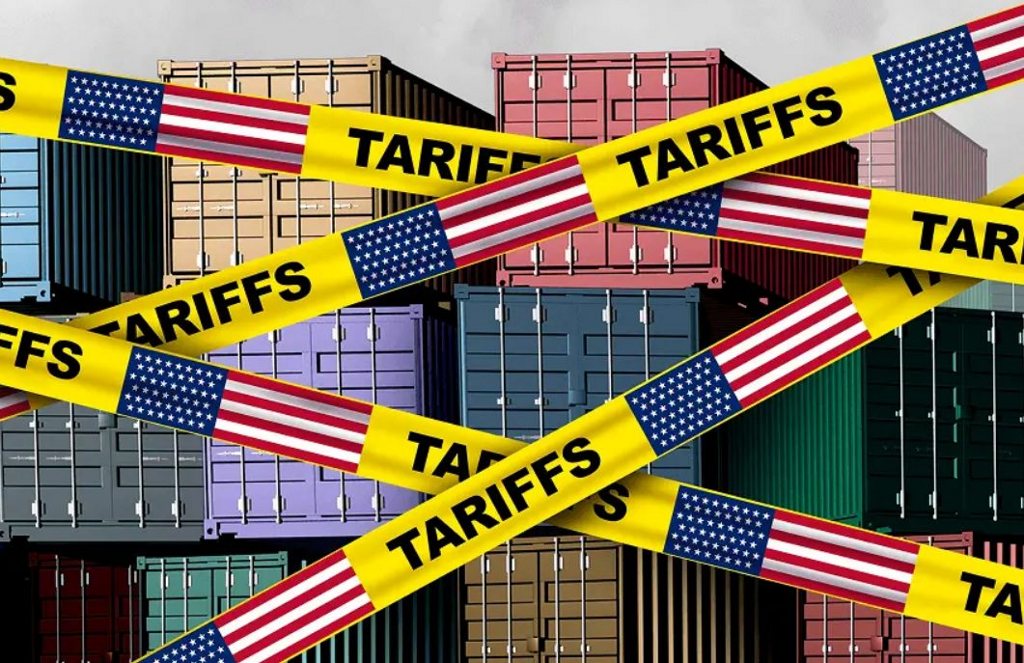QCOSTARICA (Revista Summa) With just over a month after the start of the Trump administration in 2025, the economic and political landscape that Costa Rica will face over the next four years presents significant challenges and strategic opportunities.
This was analyzed by Rodrigo Cubero, former president of the Central Bank of Costa Rica (BCCR), and Eduardo Ulibarri, journalist and former ambassador to the UN, who participated in a discussion organized by Fidélitas University on the political and economic perspectives of the new US administration.
Trump’s new political approach toward Latin America has been marked by a tougher stance on immigration issues, tariff measures that would negatively affect international trade, and now, most recently, by his request to his country’s Congress to repeal the Chips Act (which allows Costa Rica to attract semiconductor manufacturing companies).
– Advertisement –
Among the main risks identified for Costa Rica are the possible imposition of tariffs on key exports, the impact of rising inflation in the United States on the country’s interest rates, and the competition to attract foreign investment.
Latent Risks and the Need for Diversification
Eduardo Ulibarri emphasized the importance of Costa Rica continuing to be a strategic partner of the United States, maintaining its values and competitive advantages. However, he warned of the risk that, if the Trump administration perceives an imbalance in the trade relationship, it could impose tariffs that would seriously affect key productive sectors.
“If tariffs on our products are increased, the solution would be to increase productivity and expand the range of markets to which we direct our goods and services,” Ulibarri stated. He also emphasized the importance of strengthening Costa Rican diplomacy in Washington and establishing more fluid relations with the White House and the US Congress.
Economic Impact and Pressure on Financial Stability
Rodrigo Cubero, for his part, emphasized the potential impact that Trump’s policies could have on the global and Costa Rican economies. He warned of the risk of rising US inflation, which could translate into higher interest rates in Costa Rica, making credit more expensive and affecting economic growth.
He also indicated that any reduction in the growth of Central American economies—with which Costa Rica also maintains trade relations—could negatively impact regional trade. Another critical aspect is the risk that the US will prioritize investment in its own territory, limiting capital flows to the country.
Costa Rica as a Strategic Partner: A Long-Term Vision
Despite the challenges, both panelists agreed that Costa Rica still enjoys a privileged position as a US ally. Senator Marco Rubio’s recent visit left a positive impression, reinforcing Costa Rica’s image as a reliable and stable country in the region. This type of approach, according to experts, could help reduce the risk of protectionist measures.
– Advertisement –
However, the challenge for the government and the productive sector will be to navigate cautiously and strategically in an uncertain and volatile environment. The key will be to maintain constant dialogue with Washington, strengthen the country’s competitive advantages, and advance market and product diversification.
In the specific case of the semiconductor industry, a booming sector in Costa Rica, any imposition of tariffs or the material withdrawal of the Chips and Science Law could hinder new investments and harm local production. Therefore, it is crucial to position ourselves as an attractive destination for investment in this and other strategic sectors for our economy.
The challenge of national unity in the face of uncertainty
Faced with an uncertain global outlook, Ulibarri emphasized the need for Costa Rica to strengthen its political and social cohesion. “Every country facing uncertainty must look inward and work together. Political polarization and the lack of national consensus make it difficult to develop clear strategies toward the United States,” he warned.
Costa Rica is at a turning point: while its relationship with the United States is key to its economic stability, the country must be prepared to adapt to potential changes in the global landscape.
– Advertisement –
Diplomatic dialogue, market diversification, and improved productivity will be essential to ensuring sustained growth over the next four years.
Translated and adapted from RevistaSumma.com. Read the original here.
– Advertisement –
Source link
Rico



